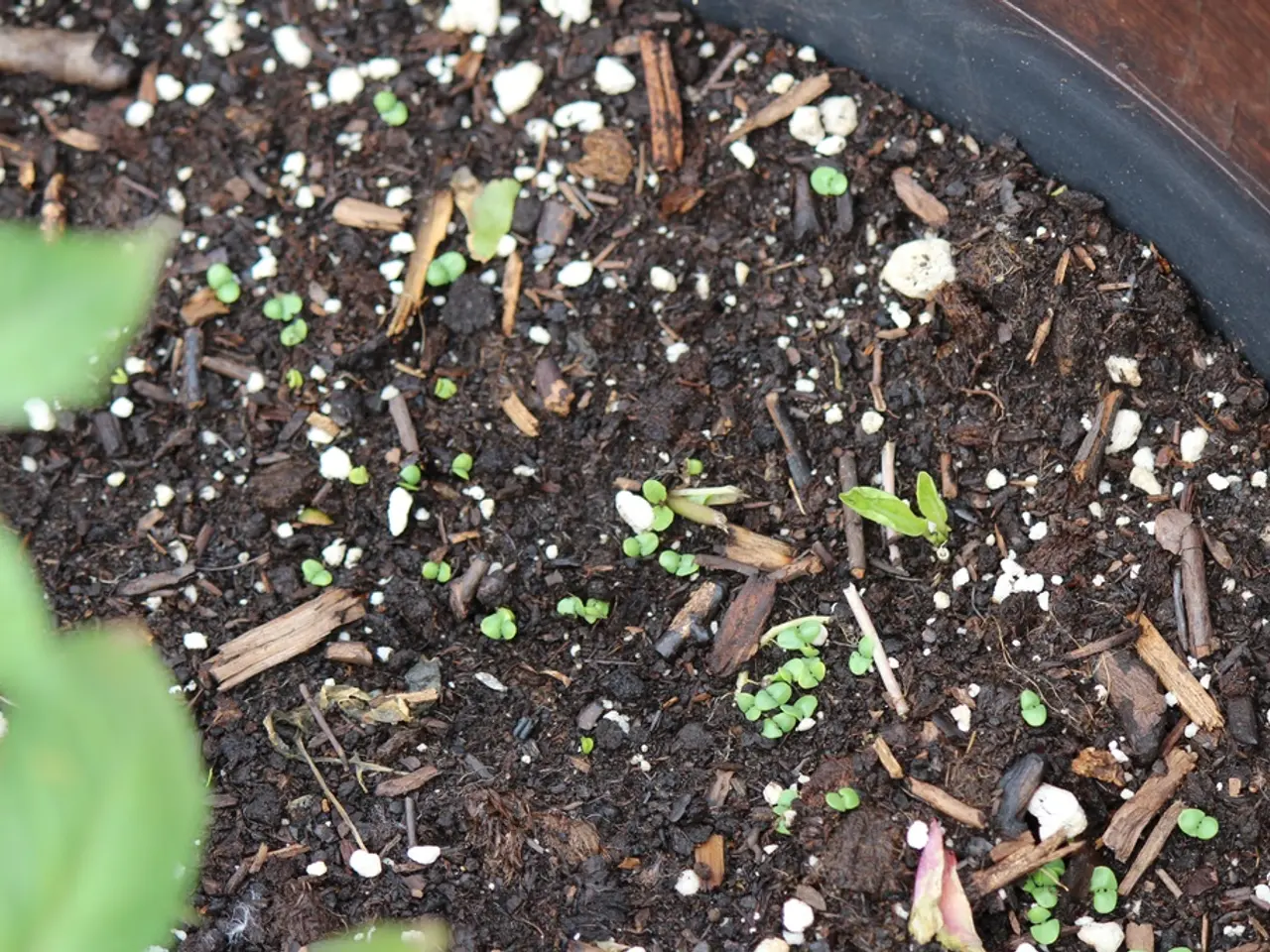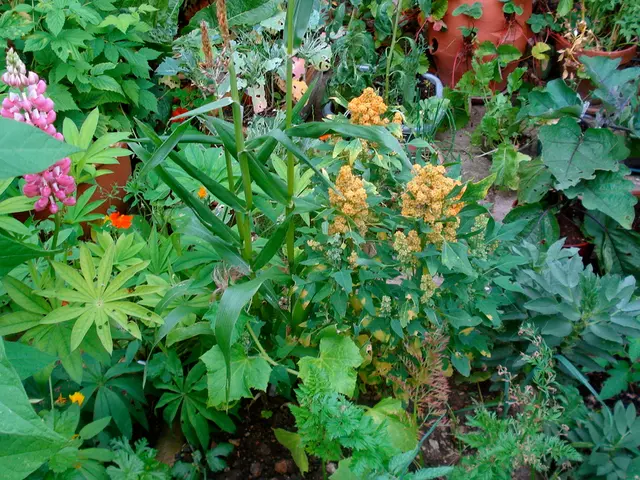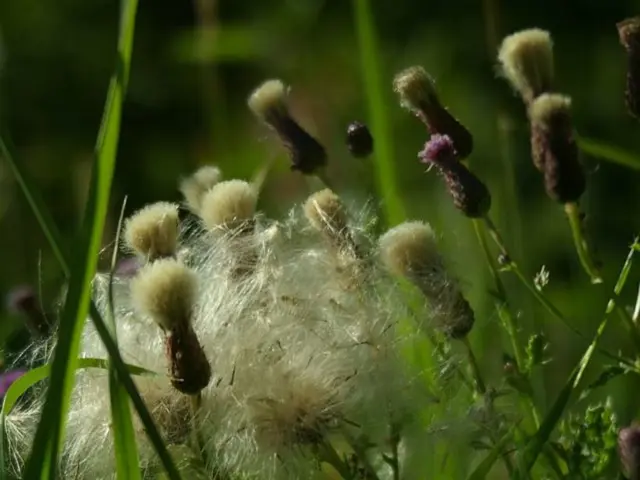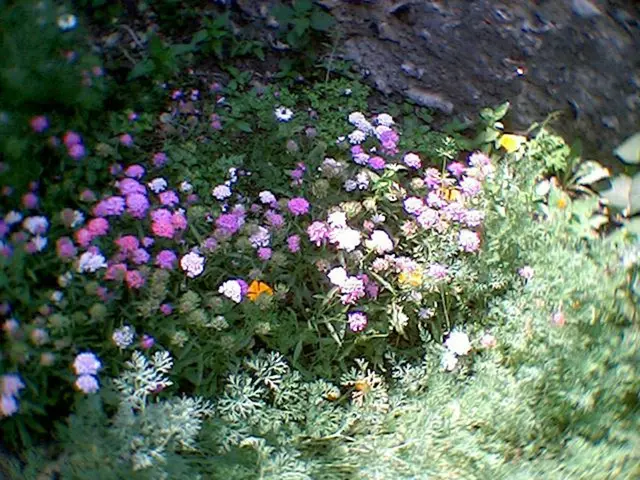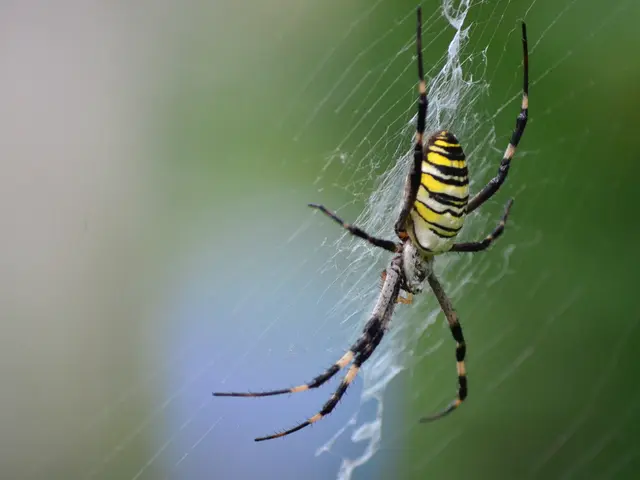Potential Contents Hiding in Your Backyard Soil: Ingredients Worth Pondering Over Twice
In the quest for healthy soil that promotes plant growth, it's essential to focus on ingredients that are easy to understand and found in nature, supporting soil life and microbes. However, some common additives in commercial soil, such as peat, perlite, and vermiculite, have environmental impacts and may not be the best choices for a sustainable garden.
Peat, a common ingredient in commercial soil, has significant environmental costs due to its harvesting destroying wetlands and emitting carbon. According to recent studies, peat extraction is responsible for around 5% of global carbon emissions, equivalent to the entire airline industry each year.
Fortunately, there are eco-friendly alternatives available that offer similar benefits while minimizing environmental impact. Three standout options are Banana Bloom fibers, cocopeat and coconut coir products, and rice hulls.
| Alternative | Source & Properties | Environmental Advantages | Key Benefits for Soil | |---------------------|---------------------------------------------|-----------------------------------------------------|------------------------------------------------| | **Banana Bloom** | Made from banana plant fibers | A sustainable, climate-conscious product that avoids peat’s high carbon emissions [1] | Retains water well without waterlogging; helps reduce water use and root diseases; shields soil from sun and moisture loss [1] | | **Cocopeat and Coir** | Derived from coconut husks and fibers | Renewable and biodegradable; sourced from coconut waste avoiding new resource depletion; eco-friendly supply chain focus [2] | Excellent water retention and aeration; promotes root growth; supports sustainable hydroponics and container gardening; biodegradable mulch options [2] | | **Rice Hulls** | Byproducts from rice processing | Recycles agricultural waste; sustainable and locally available in rice-growing regions; breaks down to enrich soil organically [3] | Improves drainage, aeration, and moisture holding; neutral pH suitable for many plants; less dusty than mined amendments [3] |
These alternatives are biodegradable and often improve soil health by adding organic matter, supporting sustainable farming practices and reducing the need for chemical inputs. They help conserve water more efficiently and reduce plant diseases by balancing moisture better than peat.
By choosing these alternatives, gardeners can maintain soil fertility and structure while dramatically reducing the environmental footprint associated with traditional peat-based soils. This supports more climate-friendly and sustainable commercial growing operations.
In addition to these alternatives, it's also important to consider the potential risks of synthetic fertilizers and biosolids, common ingredients in many commercial soils. Synthetic fertilizers, such as 10-10-10 or NPK fertilizers, may not be beneficial for the long-term health of soil or plants. They can create osmotic stress on plants, preventing them from uptaking water and regulating water correctly. Biosolids, found in many big box store potting soils and soil amendments, are a concern due to potential human waste and manure from big CAFOs.
To ensure a healthier garden and a more sustainable future, consider opting for organic soil certified by entities like the USDA's National Organic Program or the Organic Materials Review Institute. These products help avoid problem ingredients and set you up for greater gardening success with healthier soil and happier plants.
- To foster plant growth and promote healthy soil, consider avoiding peat, a common component in commercial soil, due to its environmental implications and high carbon emissions.
- As eco-friendly alternatives, Banana Bloom fibers, cocopeat and coconut coir products, and rice hulls offer benefits similar to peat while minimizing environmental impact.
- Banana Bloom, made from banana plant fibers, is a climate-conscious product that retains water well, reduces water use, and prevents root diseases.
- Cocopeat and coir, derived from coconut husks and fibers, are renewable, biodegradable, and promote healthy root growth, suitable for sustainable hydroponics and container gardening.
- Rice hulls, byproducts from rice processing, can improve soil structure by enhancing drainage, aeration, and moisture retention, while also being locally available and sustainable.
- Organic soil certified by entities like the USDA's National Organic Program or the Organic Materials Review Institute can help avoid problem ingredients, ensuring a healthier garden and a more sustainable future.
- By opting for these alternatives and certified organic soil, gardeners can maintain soil fertility while minimizing the environmental footprint and supporting a more climate-friendly and sustainable gardening lifestyle.
